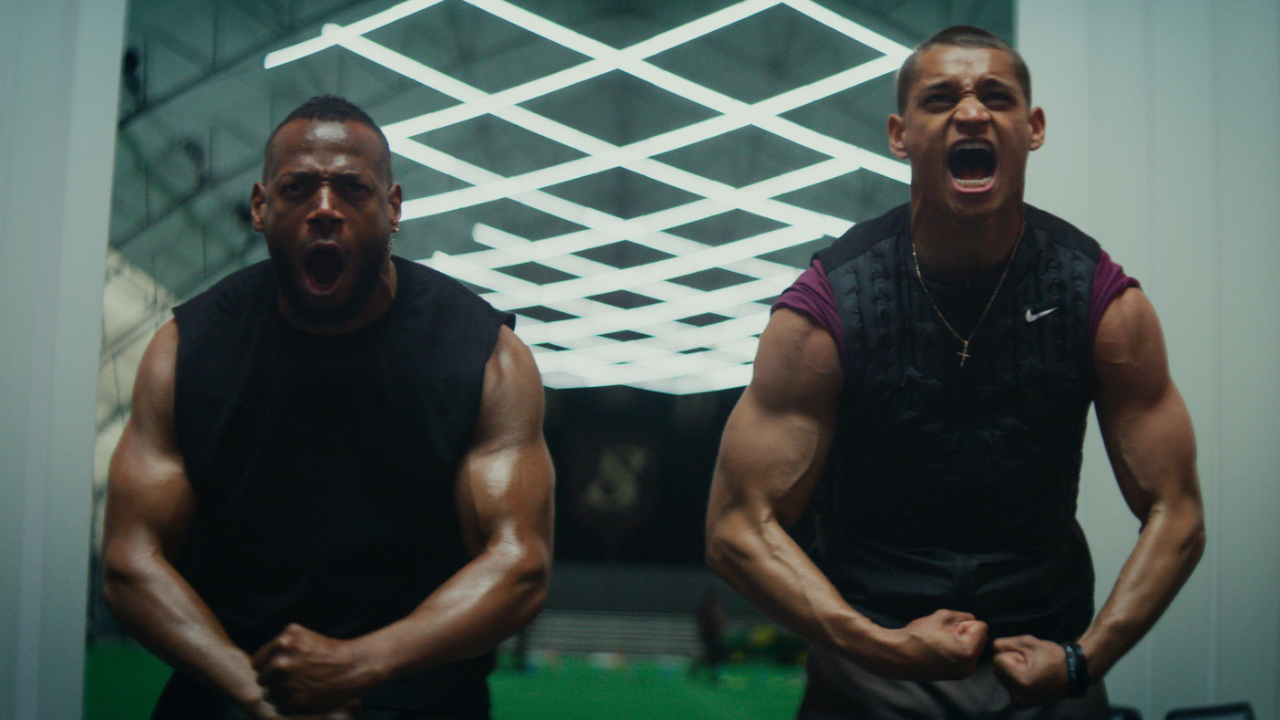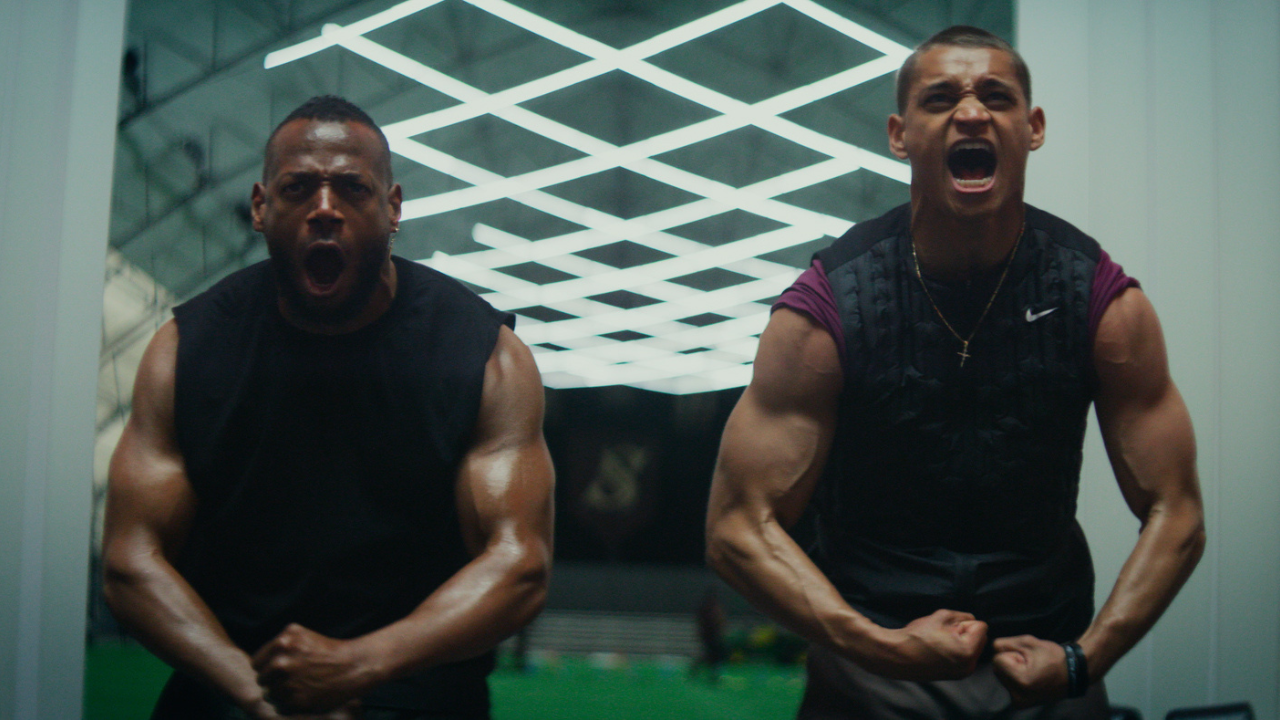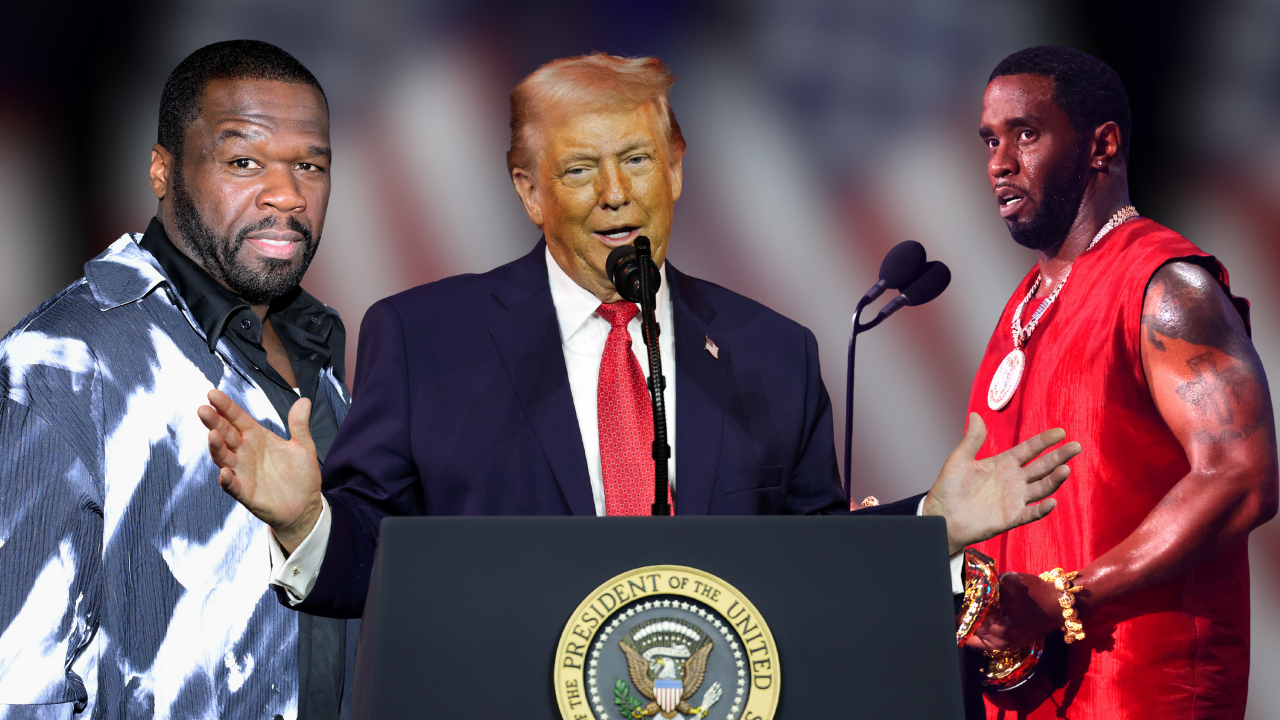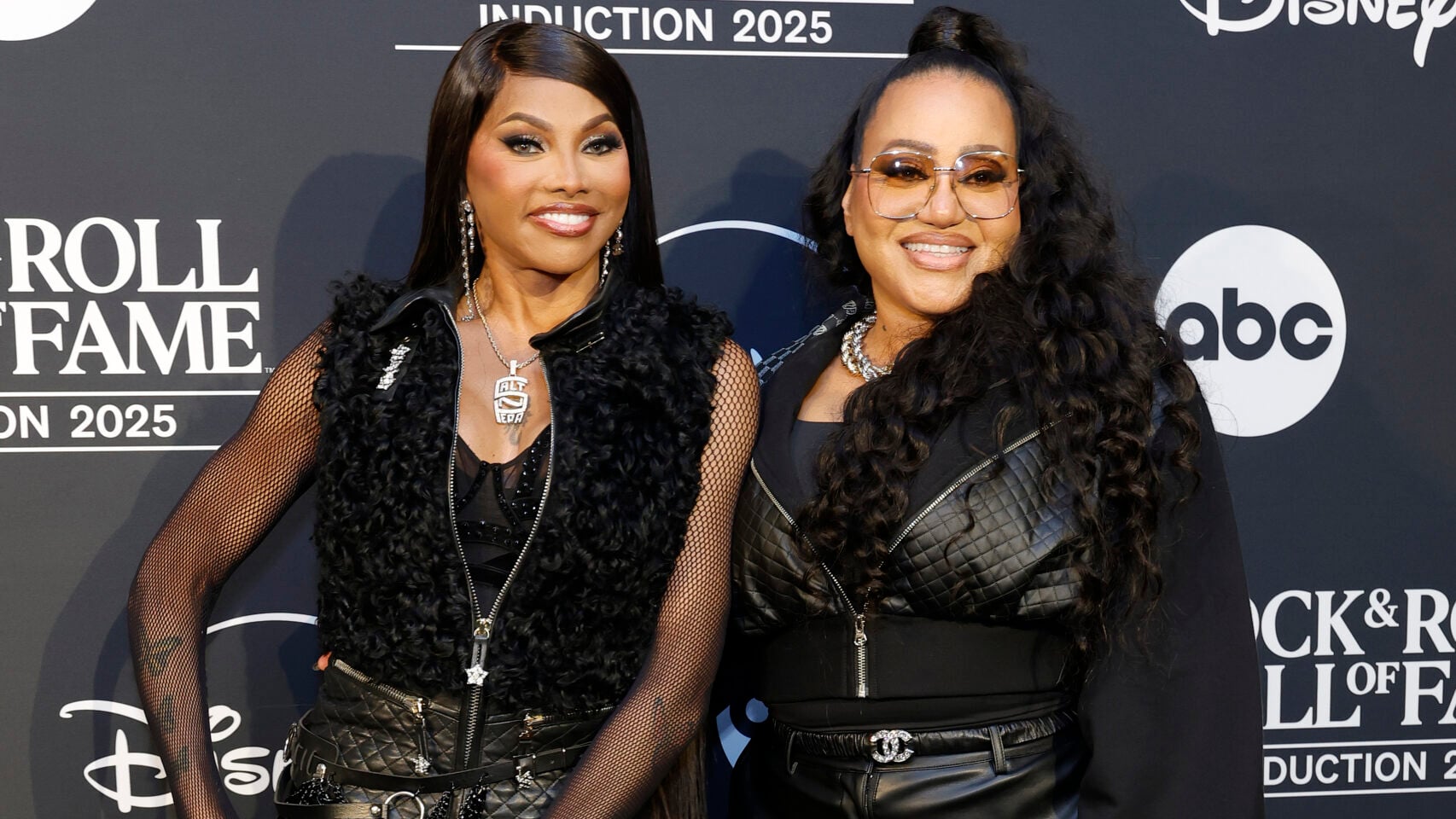
Jordan Peele, Marlon Wayans and breakout star Tyriq Withers have teamed up to deliver a sports-horror fever dream in the new film “HIM.” Though the trailer keeps things intentionally murky, it’s clear that this isn’t your average underdog sports story. Withers plays Cameron Cade, a rising football star chasing his shot at the league while training alongside his idol Isaiah White, played by Wayans. What unfolds is less about playbooks and more about the psychological toll of chasing greatness. “HIM” peels back the layers on the sacrifices athletes make, the systems designed to chew them up, and the haunting obsession with becoming the G.O.A.T…even when that crown comes at the cost of your soul.
For Withers, physically preparing for the role involved training with former NFL quarterback Jordan Palmer, but mentally, the actor simply had to look introspectively. When asked about how he tapped into his character’s psyche, the “HIM” lead revealed, his on-screen character’s experience is a “direct correlation with what I was experiencing as an actor, cast into a big studio film, being opposite an iconic actor like Marlon Wayans,” Withers told theGrio. “So I think that preparation whipped me into shape like, ‘okay, I have something to prove. I want to show up and I want to do a good job.’”
Before stepping into the acting world, Withers was a wide receiver at Florida State University in 2017, an experience, he says helped him transform into Cameron Cade, a quarterback with a promising future.
“Pulling in from prior experiences, playing college football was helpful as well, because I knew what it’s like to want something so bad,” he continued. “So I just applied it in my life. And, you know, waking up every day, the most important thing was, how do I prep this character, Cameron Cade, to be a vessel for people chasing greatness? And I think that perfectionism pushed me to a place where the experience Cameron was having, those emotions, were felt by me as a human.”
The film reveals a new side of Withers and Wayans, who each showcase a new, deeper layer of their talent. And in order to bring that performance to the big screen, Withers admits he and Wayans explored from the deepest and darkest parts of themself.
“I think what me and Marlon put on screen is an accumulation of our mosaic. And our mosaic is trauma, pain, love, laugh and joy, all those experiences poured into this movie,” he said, reflecting on how some of the most powerful scenes were so vulnerable they were scary.
“Honestly, it was one of the scariest days of my life,” he said, reflecting on his monologue in the film, a scene in which director Justin Tipping asked him to “go there.”
“I connected that to my own grief. And I think as an actor, it’s one of the milestones of a career where you get to have a monologue and really come from a real place,” Withers shared. “I think I was able to serve as a vessel of my own pain, and I was grateful for that, because it was a cathartic experience. Part of me healed that night, and I think that’s why I make movies, to heal myself in whatever capacity so I could just make a better Tyriq, and I can help heal others through my art form.”
Like Peele’s other productions, “Get Out” and “Us,” the sports psychological thriller is filled with a handful of hidden messages for viewers to dissect and walk away with. However, for Withers, grief was a theme that continues to stand out to him.
“I think there’s a lot that audiences can take away, but something that I’ve recently talked to my therapist about is the idea of grief,” he shared. “You have the grief where you lose the loved one, right? That’s grief. But also, there’s grief of oneself when you start to become somebody you’re not, or you don’t feel like you can be truly authentic to yourself. There’s also grief of when you gave up sports. I’m still grieving the sports that I used to love so much…[that] I still love so much. Grief is that love that still sits within you for it, and you just know you can’t ever get that ever again. And I think with sports, it’s time, so I can’t go back to my younger years.”
“I’d love people to explore the duality of grief, the pain and suffering it causes, but the beautiful art that comes from that, you know, the roses that come from the pain. I would love people to start developing an honest and open relationship with grief,” he concluded.





